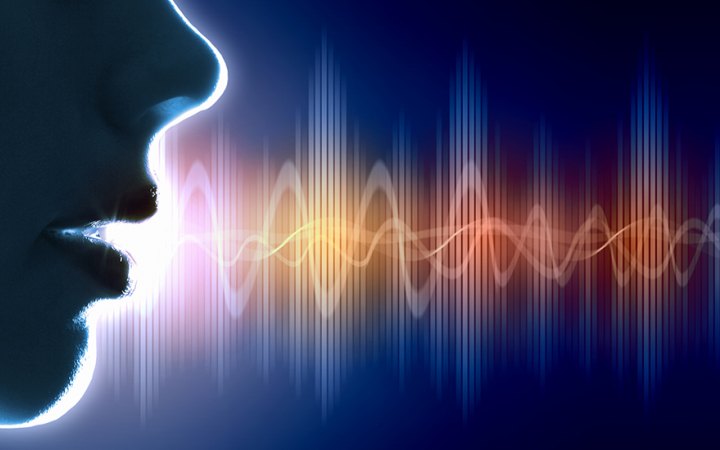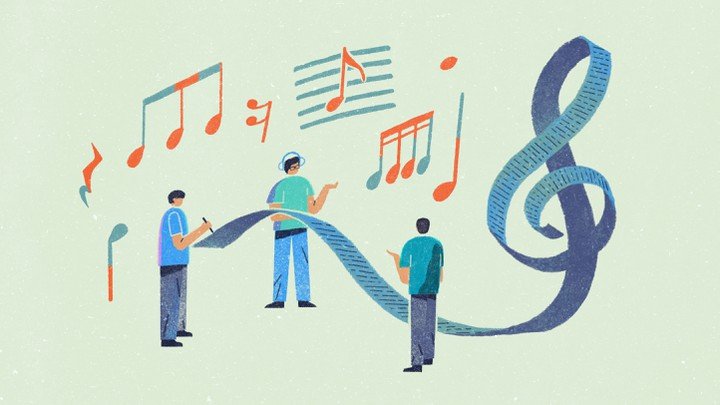-
 Why You're Better Off Buying a Soundbar Rather Than a Complex Home Theatre System, and The Best Soundbars of 2022
Why You're Better Off Buying a Soundbar Rather Than a Complex Home Theatre System, and The Best Soundbars of 2022
-
 Sound-Bars vs Home Theatre Systems: Which One to Go for? Here are Some Ideas to Help You Make the Right Choice for an Awesome Listening Experience.
Sound-Bars vs Home Theatre Systems: Which One to Go for? Here are Some Ideas to Help You Make the Right Choice for an Awesome Listening Experience.
-
 Google Home vs Amazon Echo: A Guide to Choose Perfect Smart Speakers for Yourself (2020)
Google Home vs Amazon Echo: A Guide to Choose Perfect Smart Speakers for Yourself (2020)
Before We Delve Further: What Exactly is Music?
Music is the door to the heart. Music is said to be a weapon. Music motivates us. It can alter our temperament, make us want to dance, allow us vitality, or put us in a relaxed mood. It can, moreover, significantly improve our attention, inventiveness, and proficiency when attempting to retain data or doing some work-related tasks. More often than not, a coffee pause just doesn't help much. Music has been utilized as a sort of treatment for decades now, likely centuries before we began studying it. We don't require analysis to tell us that music can unwind us or alter our temperament because we don't just hear it, we sense it.
There are a couple of studies that theorize temperament specifically impacts learning, which makes lots of sense since our character can either improve our knowledge (in case it's positive) or divert us from giving attention to anything else, particularly when we are attempting to concentrate on learning. Depending on your melodic training and your involvement with music, how our brain responds to music shifts from one individual to the other. This implies that there exist distinctive sorts of music and how they affect individuals varies from one individual to another. Our capability to concentrate depends on the music we fancy, and what kind of music soothes us, in any case, our familiarity with a tune can also cause diversions.
Different Ways in Which Music Affects the Brain
Happy As Well As Sad Music Affects the Way We See Different Faces

We can more often be unable to choose if a bit of music is particularly cheerful or pitiful, but this isn't only an idiosyncratic thought that comes from the way it makes us feel. Our minds react oppositely to cheerful and pitiful music. Even brief pieces of upbeat or pitiful music can influence us. One study proved that after listening to a short piece of music, members were more likely to decipher an unbiased eloquence as upbeat or pitiful, to match the tone of the music they listened to. This, too, followed with other facial expressions but was most eminent for those that were near to neutral.
Something else that's curiously related to how our feelings are influenced by music is that there are two sorts of emotions associated with music: perceived emotions and felt emotions. This implies that now and then, we can understand the feelings of a bit of music without really feeling them, which clarifies why a few of us find listening to dramatic music pleasant, instead of depressing. Unlike in real-life circumstances, we do not feel any genuine threat or peril when tuning in to music, so we can see the related feelings without really feeling them—almost like pretended emotions.
Ambient Sound Can Enhance Creativity
We all love to listen to the tunes when we're actively through our to-do records, right? But when it comes to imaginative work, loud music may not be the most excellent choice. It turns out that a low commotion level could be a sweet spot for inventiveness. Even more than low commotion levels, ambient commotion gets our imaginative juices streaming and doesn't get our attention off the way high levels of noise do.
In simpler words, when we struggle (only sufficient) to handle things as we more often than not would, we resort to more imaginative methods. In high commotion levels, in any case, our creative thinking is impeded since we're overpowered and struggle to process data efficiently. This is very comparable to how warmth and lighting can influence our efficiency, where incomprehensibly, a somewhat more swarmed place can be advantageous.
Your Personality Can Be Predicted by Your Playlist
Read this one with a grain of salt, since it's just been tried on youthful adults, but it's nevertheless fascinating.
In a study of students who got to know each other by going through each other’s top ten preferred tunes gave reasonable predictions as to what the listener's identity traits were. The study utilized five identity characteristics for the test: openness to encounter, extraversion, friendliness, conscientiousness, and sentimental stability. It was intriguing that a few characteristics were more precisely anticipated based on the person's listening propensities than others. For occasion, openness to encounter, extraversion, and sentimental stability was the most effortless to figure accurately. Conscientiousness, on the other hand, wasn't self-evident based on melodic taste.
Here is additionally a break-down of how the distinctive sorts correspond to our identity, agreeing to an analysis carried out at the Heriot-Watt College:
To make it simple and easy, here is the association they have observed: blues supporters have great self-esteem, are creative, outgoing, and gentle and at ease. Jazz enthusiasts have high self-esteem, are creative, friendly as well as at ease. Classical songs aficionados have high self-esteem are creative, introvert and at ease. Rap devotees have high self-esteem and are kind. Opera fans have high self-confidence, are artistic and tender. The country and western enthusiasts are hardworking and friendly. Reggae supporters have high self-esteem, are imaginative, not hardworking, outgoing, considerate and at ease. Dance aficionados are creative and outgoing but not soft. Indie supporters have low self-esteem, are inventive, not diligent, and not soft. Bollywood enthusiasts are imaginative as well as outgoing.
Music Practice Can Significantly Enhance Our Motor As Well As Thinking Abilities
We, for the most part, accept that learning a melodic instrument can be advantageous for kids, but it's valuable in more ways than we might anticipate. One study revealed that kids who had three years or more melodic instrument education performed way better than the ones who didn't learn an instrument in sound-related segregation capacities and fine motor aptitudes.
They, too, tested superior on lexicon and nonverbal thinking aptitudes, which include understanding and analyzing visual data, such as distinguishing connections, similitudes, and contrasts among shapes as well as patterns. These two regions, in specific, are expelled from melodic education as we envision it, so it's interesting to see how learning to play a musical instrument can help kids create such a wide assortment of basic skills.
A similar analysis confirms this relationship for exercise and a motor ability within the same way, which is, even more, is also is additionally intriguing.
Music Is What Helps Us Finish Our Work Out
Coming back to music, and we can see that a bit like silence doesn't assist us to be more inventive or superior drivers, it's not of a lot of use when we're working out, either. Investigation on the impacts of music amid work out has been done for a long time. In 1911, an American analyst, Leonard Ayres, found out that cyclists drove quicker when tuning in to music than they did in quietness.
This happens since tuning in to music can suffocate out our brain's cries of weakness. As our body recognizes we're exhausted and needs to stop working out, it transmits signals to the brain to stop for a pause. Tuning in to music fights for our brain's attention, and can assist us in superseding those signals of weakness, even though this is often advantageous for low- and average-intensity workout. Amid high-intensity workout, music isn't as capable of drawing our brain's consideration away from the torment of the exercise. Not only can we thrust through the torment to work out for a long time and a hard workout when we tune in to music, but it can also assist us in utilizing our vitality more productively. A 2012 investigation into this revealed that cyclists who tuned in to music needed 7% less oxygen to do the same task as compared to those who cycled in quietness.
Some later investigation has also revealed that there is a ceiling impact on music at around 145 bpm, where anything more powerful does not seem to add much inspiration, so keep that in mind when deciding your workout playlist. Now, if we group up these distinctive "tempos" with the real workout that we're doing, we can be in way better sync and discover the right beat for our practice. So, in the exact same way, that working out makes us more joyful, it's not shocking that music adds essentially to our workout victory.
Why Does It Feel like a Song Is Stuck in Your Brain?
That's really a not exceptional phenomenon analysts allude to as involuntary musical imagery (INMI), or "earworms". It may be because of the music or tune, itself. Looking at the best 100 tunes preferred by the 3000 individuals examined who underwent having earworms, analysts distinguished a few common components of the songs. Lyrics most likely to urge stuck had more energetic tempos, an unordinary interim structure, or chord or chorus redundancies. An illustration of the best “earworms” individuals find most troublesome to get out of their heads was YMCA- Village People, Bohemian Rhapsody- Queen, and Happy- Pharrell Williams.
There is a lot more to learn concerning how music influences your brain. In case you're fascinated by learning more about the neuroscience of musicology, how we get specific songs stuck in our heads, or why 10,000 hours, not talent, makes experts study Daniel Levitin's book. On the chance that you'd like to fortify your brain working in all the ways compiled above, put on the songs.
Songs Heighten Arousal and Performance
Dopamine is a neurotransmitter related to satisfaction. It transmits data between neurons within the brain and benefits within the regulation of consideration, development, learning as well as emotions—known particularly to add to sentiments of delight we encounter amid eating, resting, and sex. We presently know that tuning in to music too causes the release of dopamine -and this isn't particular to a specific sort of music. Subjects who were uncovered to PET scans when tuning in to an orchestra had the same dopamine reaction as those uncovered to other sorts of music. Daniel Abrams, the creator of this investigation and analyst, found that when we tune in to music, our brains are doing much more than basically handling sound. Music enacted all zones of the brain related to planning, consideration, movement, as well as memory as dopamine was discharged.
Music Has Health-Related Advantages As Well
By now, we've talked about the mental and neurological advantages of ethnomusicology. What about the rest of your body? Are there any physiological advantages associated with music?
In one investigation, analysts observed patients who were going to experience operation. Half of the patients were relegated to tune in to music prior to the surgery, whereas the rest took anti-anxiety medications. Just before the procedure, they inspected the patients' levels of cortisol (the stress hormone).
The comes about revealed that the music hearers went into the operation with a lot less uneasiness and lower cortisol levels than the ones who took the medications. So, while this was only one investigation, it does indicate that there may be a few medicinal values to music as well.
Concluding Note: Two Things to Keep In Mind at the Time of Song Selection
-
 10 Gifts for Boyfriend on Anniversary That Will Bring You Closer Together and How to Create Traditions That Will Keep You Close (2018)
10 Gifts for Boyfriend on Anniversary That Will Bring You Closer Together and How to Create Traditions That Will Keep You Close (2018)
-
 Why You're Better Off Buying a Soundbar Rather Than a Complex Home Theatre System, and The Best Soundbars of 2022
Why You're Better Off Buying a Soundbar Rather Than a Complex Home Theatre System, and The Best Soundbars of 2022
-
 Sound-Bars vs Home Theatre Systems: Which One to Go for? Here are Some Ideas to Help You Make the Right Choice for an Awesome Listening Experience.
Sound-Bars vs Home Theatre Systems: Which One to Go for? Here are Some Ideas to Help You Make the Right Choice for an Awesome Listening Experience.
-
 Google Home vs Amazon Echo: A Guide to Choose Perfect Smart Speakers for Yourself (2020)
Google Home vs Amazon Echo: A Guide to Choose Perfect Smart Speakers for Yourself (2020)
-
 Not Sure which Bluetooth Speaker to Buy? Follow this Guide for Buying the Best Bluetooth Portable Speaker Online in 2020
Not Sure which Bluetooth Speaker to Buy? Follow this Guide for Buying the Best Bluetooth Portable Speaker Online in 2020
The Playlist is Just for You
As a final thought, remember--if your playlist is intended just for you, don't worry about what anyone else is going to think. It doesn't matter if the track is the latest from Beyonce or Adele, the theme to the Andy Griffith Show or a Sousa march. All that matters is that your brain responds to it in the desired way. If it helps you achieve your intended goal, it's worth listening to.



















 Highlight the Best Facets of Your Incomparable Beauty: Discover the Best Face Highlighter Currently Available in India and Everything You Need to Know About Using Face Highlighters for Maximum Effect (2023)
Highlight the Best Facets of Your Incomparable Beauty: Discover the Best Face Highlighter Currently Available in India and Everything You Need to Know About Using Face Highlighters for Maximum Effect (2023)
 Forget the Blemishes and Get that Picture Perfect Flawless Radiance on Your Face: Check out the Best Foundations for Oily Skin Currently Available in India and Everything You Need to Know About Makeup Foundations (2023)
Forget the Blemishes and Get that Picture Perfect Flawless Radiance on Your Face: Check out the Best Foundations for Oily Skin Currently Available in India and Everything You Need to Know About Makeup Foundations (2023)
 Make Your Presence Felt Wherever You Go: Discover the Best Perfumes Under 2000 for Both Men and Women to Announce Your Arrival and Make Any Occasion Memorable (2023)
Make Your Presence Felt Wherever You Go: Discover the Best Perfumes Under 2000 for Both Men and Women to Announce Your Arrival and Make Any Occasion Memorable (2023)
 Protect Your Oily Skin from the Harmful Rays of the Sun: Discover the Best Gel Based Sunscreens for Oily Skin and Everything You Need to Know Before Buying One (2023)
Protect Your Oily Skin from the Harmful Rays of the Sun: Discover the Best Gel Based Sunscreens for Oily Skin and Everything You Need to Know Before Buying One (2023)
 Minor Blemishes and Wrinkles Affecting Your Confidence? Check out the Best BB Creams to Conceal Your Worries and Nourish Your Skin to Restore the Healthy, Radiant and Glowing Complexion Back Again (2023)
Minor Blemishes and Wrinkles Affecting Your Confidence? Check out the Best BB Creams to Conceal Your Worries and Nourish Your Skin to Restore the Healthy, Radiant and Glowing Complexion Back Again (2023)
